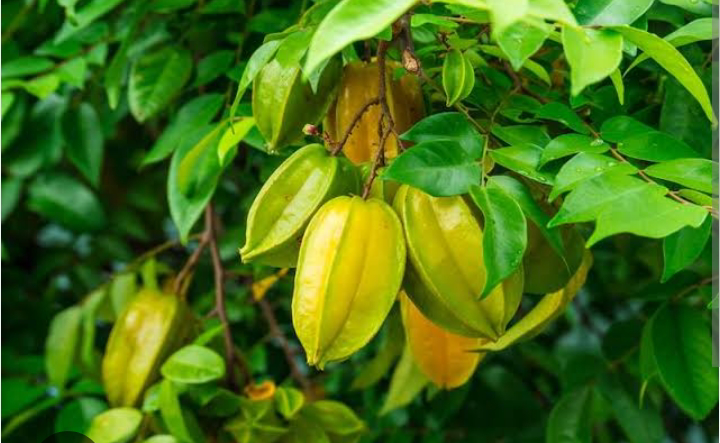
Star Fruit Medicinal Benefits
Star Fruit Medicinal Benefits Averrho carambola: Star Fruit Medicinal Benefits of Leaf, Fruit, Bark, and Root Introduction Many people enjoy
May help modulate neurotransmitter activity, reduce neuroinflammation, and enhance antioxidant defenses, potentially offering neuroprotective effects.
Contains curcumin, a powerful antioxidant and anti-inflammatory compound, which may support brain health and reduce inflammation.
May have positive effects on Alzheimer’s and other degenerative neurological diseases, potentially playing a role in warding off degenerative disease.
A source of vitamin C and may have anti-inflammatory and antioxidant properties, potentially easing arthritis pain.
Contains EGCG, which has anti-inflammatory and antioxidant properties and may help reduce bone deterioration.
May have an anti-aging effect, potentially arresting the ravages of old age.
May help with degeneration of cartilage and stimulate perspiration.
May help manage blood pressure levels and has anti-inflammatory properties.
Contains bioactive compounds that may help reduce inflammation and manage blood pressure.
A caffeine-free herbal infusion known for its numerous health benefits, including reducing the risk of chronic diseases.
Important Considerations:
Herbal teas are often used as part of a holistic approach to health and well-being, and consistent consumption over time may be necessary to experience their potential benefits.

Star Fruit Medicinal Benefits Averrho carambola: Star Fruit Medicinal Benefits of Leaf, Fruit, Bark, and Root Introduction Many people enjoy

Activated Chaicoal Remove unwantedness.
Not just a Chaicoal. But activated to remove unwantedness in the system.
We deliver core herbal procedure cures for our users for better and more efficient health value.